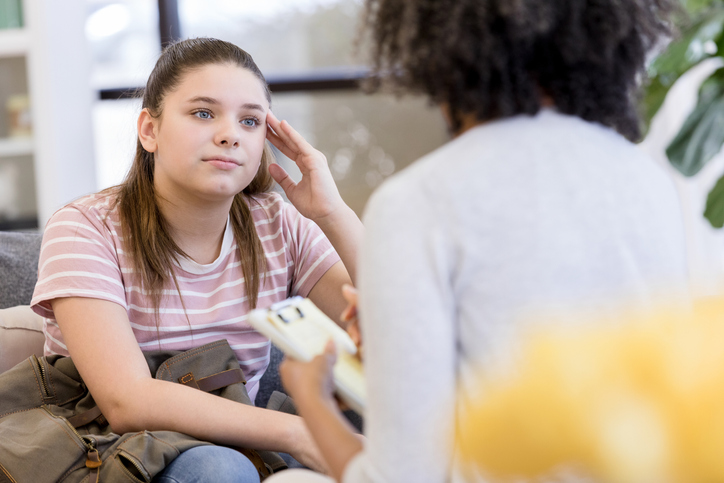
Life as a therapist can bring unexpected adventures. Once, I had a client literally hide from me. She tucked herself behind my extra office chair for most of the session until I got creative, suggesting we leave the office altogether to hit the nearest vending machine for a snack. That’s when we actually got talking.
My client, if you haven’t guessed already, was a shy child.

With the Rise of AI, What IP Disputes in Healthcare Are Likely to Emerge?
Munck Wilson Mandala Partner Greg Howison shared his perspective on some of the legal ramifications around AI, IP, connected devices and the data they generate, in response to emailed questions.
Therapy for children — when done right — looks very different from therapy for adults. For one, adults generally come to therapy of their own volition, while kids and teens are often brought in by concerned parents or caregivers. Children may be scared, uncertain, or reluctant to speak. In some cases, they may even see therapy as punishment.
So it makes sense that we need to approach therapy — and behavioral health care in general — differently when it comes to children. Unfortunately, kids are still frequently thrown into adult-centric treatment models that simply don’t work well for them.
This mismatched model is a big part of the reason we have an urgent children’s mental health crisis on our hands today — a crisis that has children’s hospitals around the country warning about long wait lists to receive care and declaring states of emergency. To fix it, we need to create, from the ground up, a system of behavioral health care designed to meet kids’ unique needs.
What would such a system look like? To start, a pediatric behavioral health care system must begin by helping families figure out what kind of support they need. Too often, children’s needs aren’t professionally triaged to guide them to the right kind of care, whether that’s lifestyle changes, therapy, medication management, or other forms of support. Instead, parents and caregivers end up going through a frustrating trial and error approach just to figure out a treatment plan that might work for them.
This is especially troubling because children are much more likely than adults to have multiple behavioral health issues that require coordinated, multidisciplinary care. Let’s take children with attention deficit/hyperactivity disorder (ADHD) as an example: 27% of them also have a conduct disorder, 18% anxiety, and 15% depression. This means that children with ADHD usually need a team of clinicians to support their care. Yet pediatric behavioral health providers rarely work in coordinated teams. This requires families to serve as ad hoc liaisons between multiple medical facilities and care systems — a complicated role many parents and caregivers have neither the training nor time to undertake.
Families are also hard-pressed to find care for behavioral health concerns that are just starting to develop, despite the fact that options like coaching or digital tools can dramatically improve a child’s symptoms and quality of life. For example, a child who is acting out may benefit from coaching that helps them with mood management by addressing things like stress, anxiety, and sleep issues. Self-guided content can also help parents directly make changes in the home or serve as an empowering way for older kids to take ownership of their care. A truly effective pediatric behavioral health care program must include these options in addition to clinical care.
In addition, a care program for kids must involve the adults in the kids’ lives. While a child may spend an hour a week at a clinician’s office, they spend many hours each day in their home and school environments. Collaboration among parents, teachers, and a child’s treatment team to reinforce lessons and habits is a crucial key to success.
Parental involvement is especially important, with parent behavior training serving as a vital part of a child’s behavioral healthcare. Dyadic care models that include parents in a child’s care have proven three times more likely to be effective than care provided to the child alone.
These approaches, taken together, create a behavioral health care model that caters to the unique needs of children. It’s the model we must make the norm if we truly care about children’s behavioral health.
For too long, we’ve forced kids to make do with services made for adults. We’ve put them through unnecessary trial-and-error processes, kept their parents and teachers out of the loop, limited options, and created bureaucratic hurdles that fracture and compartmentalize the care they do receive. The results have been nothing less than tragic, as evidenced by today’s pediatric behavioral health crisis.
Now is the time for change.
Photo: metamorworks, Getty Images
Renee Schneider, Ph.D., joined Brightline as Vice President and Head of Therapy. A licensed Clinical Psychologist committed to providing evidence-based therapies for children, teens, and families, Dr. Schneider previously was a clinical strategy leader at Lyra Health, where she served as the Vice President of Clinical Quality.














